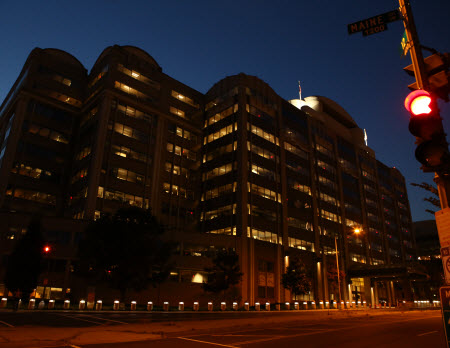FCC's Pai to Eliminate Federal Eligibility Program for Lifeline Subsidies
The smarter way to stay on top of the multichannel video marketplace. Sign up below.
You are now subscribed
Your newsletter sign-up was successful

Saying the FCC will still include broadband in its Lifeline low-income subsidies program, FCC chair Ajit Pai will return the eligibility portion of that program to the states and will not authorize nine federal lifeline authorizations he rescinded last month.
Related: FCC's Pai Rescinds Lifeline Eligibilities for Nine Telcos
“Going forward, I want to make it clear that broadband will remain in the Lifeline program so long as I have the privilege of serving as chairman," Pai said in a statement Wednesday (March 29).. "And we will continue to look for ways to make the program work even better."
Lifeline is a Universal Service Fund subsidy for basic telecommunications services for those least able to afford them.
But he also said the law was clear that it was the states, not the FCC, that had primary responsibility for approving which companies can participate, and that it was the FCC -- under his predecessor, Tom Wheeler -- that last year "snatch[ed] this legal responsibility away from states and decid[ed] to create its own federal ‘Lifeline Broadband Provider’ designation process."
Related: Pai Explains Lifeline Moves
He pointed out that a dozen states were challenging the FCC's federal eligibility framework in the D.C. federal court, that he was not going to defend it, and in fact would unwind it. "I am therefore instructing the Office of General Counsel to ask the D.C. Circuit to send this case back to the Commission for further consideration. And the FCC will soon begin a proceeding to eliminate the new federal designation process," he said.
He also made it clear the FCC was not going to grant the pending eligibilities of a handful of new authorizations issued under Wheeler.
“I do not believe that the Bureau should approve these applications," Pai said, echoing his comments when he rescinded the authorizations, but now it wouldn't make sense given that he said the process is illegal. "[I]t would be irresponsible for the Bureau to allow companies to sign up customers for subsidized broadband service through an unlawful federal authorization process that will soon be withdrawn."
The smarter way to stay on top of the multichannel video marketplace. Sign up below.
Pai cited a prominent Democrat for backup for his decision. "As Sen. Tom Udall (D-N.M.) recently observed in introducing bipartisan Lifeline legislation with Sen. Deb Fischer (R-Neb.), we need to ‘return the role of state utility commissions in determining Lifeline eligibility. State utility commissions are key to policing against fraud and harmonizing federal and state initiatives that will help us close the digital divide.’"
Pai said by letting the states take the lead -- he signaled that with a decision to allow New York more flexibility in allocating Lifeline money -- "we will strengthen the Lifeline program and put the implementation of last year’s order on a solid legal footing. This will benefit all Americans, including those participating in the program.”
Expect Pai to get some pushback from Hill Dems anyway.
A bitterly divided FCC voted 3-2 along party lines to reform the Lifeline subsidy almost exactly a year ago following the collapse of an agreement among Pai, fellow Republican Michael O'Rielly and Democrat Mignon Clyburn that would have capped the fund, something Chairman Tom Wheeler did not want to do--eventually Clyburn said she could not support the cap either.
The collapse of the deal led to an investigation by congressional Republicans in how the deal fell apart.
Contributing editor John Eggerton has been an editor and/or writer on media regulation, legislation and policy for over four decades, including covering the FCC, FTC, Congress, the major media trade associations, and the federal courts. In addition to Multichannel News and Broadcasting + Cable, his work has appeared in Radio World, TV Technology, TV Fax, This Week in Consumer Electronics, Variety and the Encyclopedia Britannica.

